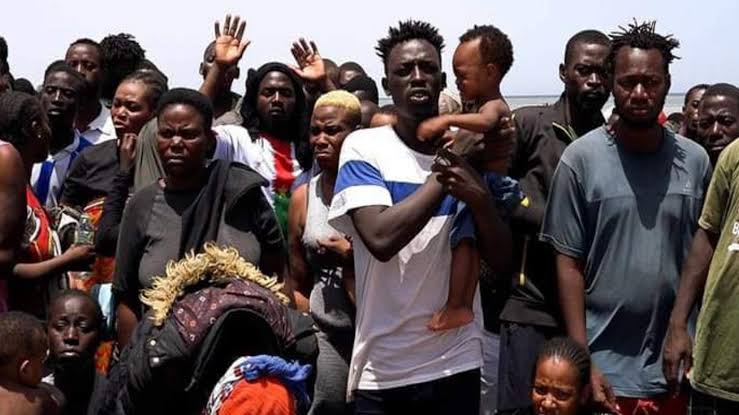
Faith Nyasuguta
Approximately 500 migrants from sub-Saharan Africa faced eviction by Tunisian security forces over the weekend from a central square in Sfax, located in central-eastern Tunisia. This eviction comes after the migrants were displaced from their homes at the beginning of July, according to a report by an NGO.
The migrants were reportedly dispersed in small groups, directed towards rural areas and other towns. Since Saturday, authorities have launched a comprehensive security campaign targeting illegal migrants, primarily originating from sub-Saharan Africa. Nearly 200 sub-Saharan migrants were arrested for allegedly planning an illegal crossing to European shores.
In February, following President Kais Saied’s speech on illegal immigration, hundreds of sub-Saharan migrants in Tunisia lost their jobs and homes, and incidents of violence were documented. Several thousands were repatriated by their embassies.
Tunisia serves as a significant transit point for migrants and asylum-seekers attempting dangerous sea journeys in search of a better life in the European Union.
Tensions flared in Sfax, Tunisia’s second-largest city, after a Tunisian man was killed on July 3 following a confrontation with migrants.
Humanitarian sources report that at least 2,000 sub-Saharan Africans have been expelled or forcibly relocated to desert regions bordering Libya and Algeria by Tunisian security forces.
This crackdown followed President Kais Saied’s inflammatory speech in February, where he alleged that illegal migrants were contributing to crime and posing a demographic threat to the predominantly Arab North African country.
As a result of these actions, at least 27 individuals died, and 73 were reported missing after being expelled to desert areas bordering Libya in July.
The World Bank, a major donor to Tunisia, suspended its future collaboration with the country in response to President Saied’s speech. The African Union (AU), of which Tunisia is a member, urged Tunisia to refrain from promoting “racialized hate speech.”
The AU then summoned Tunisia’s representative for an urgent meeting to express its deep concern about President Saied’s remarks. However, Tunisian authorities denied these allegations, with the presidency emphasizing that Saied’s speech was “maliciously interpreted.”
Despite these denials, the crackdown on sub-Saharan migrants has continued vigorously. Social media videos from early July depict Tunisian individuals threatening black Africans with weapons, while security officers were seen loading them into vans, cheered on by onlookers.
Those detained have described being arrested during raids by police, national guard, or military forces in and around Sfax. They were then transported 300 kilometers to the Libyan border, effectively trapped in a “buffer zone” where they couldn’t enter Libya or return to Tunisia. Allegations of robberies and sexual assaults by Libyan men wielding weapons were reported.
President Kais Saied, a former constitutional law professor elected in 2019, has garnered criticism for his conservative politics and recent consolidation of power through constitutional suspensions and arrests of opposition figures.
His anti-black African narrative has been viewed by critics as a diversion from Tunisia’s growing economic crisis exacerbated by the Covid-19 pandemic and the consequences of Russia’s war on Ukraine.
Officially documented migrants from sub-Saharan Africa in Tunisia number approximately 21,000 out of a total immigrant population of around 58,000.
Tunisia’s visa-free agreements with West African countries and bilateral university agreements make it an appealing destination for sub-Saharan students. However, bureaucratic challenges in Tunisia can lead even students with regular status to become irregular.
Other migrants come to Tunisia for work or to attempt the perilous journey to Europe via its Mediterranean coastline.
Tunisia’s approach to migration and migration rights fluctuates between international compliance and the need to maximize benefits from its citizens living abroad, such as remittances and skills transfer.
While Tunisia keeps its migration policies relatively open, it also seeks to cooperate with the EU and control its borders to demonstrate credibility in fighting irregular migration.
RELATED:




